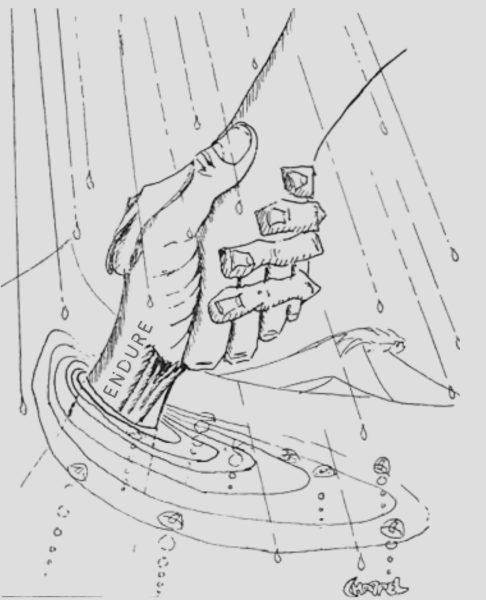For Earth Day, Use Less Water, Eat Less Meat, Save Your Planet
Life is about making sacrifices, and making sacrifices sometimes yields unexpected benefits.
April 22 marks Earth Day 2016, and all across the country, and possibly world, billions of people will commit to a healthier and greener planet.
The sacrifice is not a hard one — it is about committing to improving our planet and therefore to ourselves and our future.
We are in our fifth year of considerable drought in California, and while the fight continues about allocation of water to parts of the state, we must consider the implications of this prolonged drought on the ways we use water.
Water use in the state is immense, especially when we use so much of it to produce the food we eat. But we don’t have to use so much water to put food on our table. We could work towards food that utilizes less water.
In an essay published on waterfootpring.org, author, Arjen Y. Hoekstra argues that while we have a desire to reduce our “carbon footprint”, we generally ignore the “related and equally urgent need to reduce our water footprint.”
The essay also noted that 27 percent of the water footprint of humanity is related to the production of animal products, much higher than the amount of household water use which stands at 4 percent.
In an essay published in the Guardian, Adam Briggs noted that our diets are a “major source of greenhouse gas emissions” and that “dietary patterns will need to change to avoid catastrophic consequences.”
The Intergovernmental Panel on Climate Change estimates that emissions from food agriculture, including crop and livestock production, forestry and associated land use changes are responsible for up to 30 percent.
The Institution of Mechanical Engineers contends that 70 percent of all water use is for food production. That same production of food is the leading cause of global deforestation and biodiversity loss, according to the Food Climate Research Network. About 25 percent of all land is used to raise livestock for consumption, a trend that leads to greater deforestation and loss of land.
Thinking critically about our diet is important in this day and age of climate change and food scarcity around the world. Simply turning off the water faucet when you brush your teeth isn’t enough. We must consider how we use our valuable water resource on a global and local scale.
Food items like vegetables and fruits have a much less effect on our water usage than animal derived products such as meats, milk, oil products and eggs, according to Hoekstra. Processing vegetable leaves uses about 709 pounds of water, but for a comparably sized sheep or goat meat, an epic 19,319 pounds of water is used, leaving an immense water footprint.
Yes, we all love our meat and dairy products, but we must ask ourselves on this Earth Day whether the pleasure we derive from consuming these foods is worth the cost to our planet. How much are we willing to sacrifice for a cheeseburger?
The truth is that we cannot continue on this path to destroy our planet. We must commit to correcting the damage caused by our choices. It doesn’t have to be a hard choice. It is simply about our health and the well being of the planet.
Eating a meatless diet also limits cancer risks, reduces heart disease, fights diabetes and curbs obesity, according to available research. Reducing the amount of meat in one’s diet provides a chance for a healthier, longer life.
Let us commit to minimizing our water footprint, our carbon footprint, not just for the sake of our bodies, but for the legacy we want to leave our children.
Happy Earth Day; minimize your water use; eat less meat.








